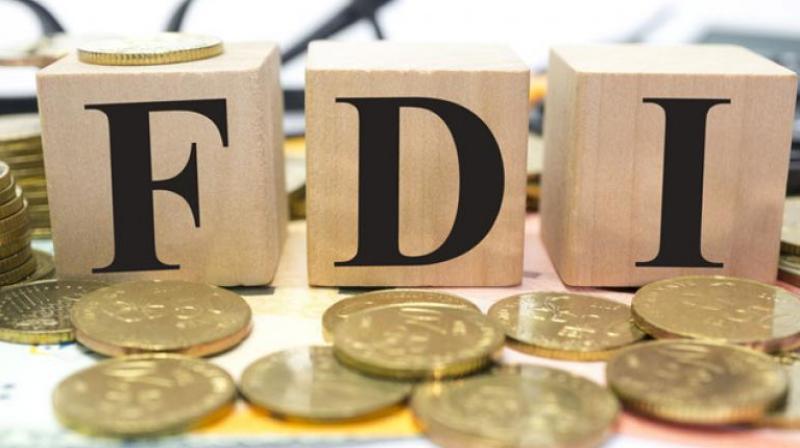DIPP notifies FDI relaxation in several sectors
Cabinet had allowed 100 pc FDI in single brand retail and construction development under automatic route.

New Delhi: The Department of Industrial Policy and Promotion (DIPP) on Wednesday notified easing of FDI rules for several sectors, including single brand retail, non- banking financial companies and construction.
On January 10, in big bang reforms ahead of the BJP government's last full Budget, the Union Cabinet had allowed 100 per cent foreign direct investment (FDI) in single brand retail and construction development under the automatic route.
Besides, foreign airlines were also allowed to buy up to 49 per cent stake in Air India.
In its press note, the DIPP said allowing 100 per cent FDI in single brand retail under automatic route is aimed at attracting investments in production, marketing, improving availability of products to consumers and encourage increased sourcing from India.
A foreign single brand retailer would be permitted to set off its incremental sourcing of goods from India for global operations during initial five years, beginning April 1 of the year of the opening of first store, against the mandatory sourcing requirement of 30 per cent purchases from India, it said.
Earlier also 100 per cent FDI was allowed in the segment, but it required government approval. The DIPP also clarified that real estate broking service does not amount to real estate business thus addressing issues faced by such firms. It is therefore eligible for 100 per cent FDI under the automatic route.
The press note also said foreign investing companies registered as non-banking financial companies (NBFC) with the RBI, being overall regulated, would be under 100 per cent automatic route.
However, investment by Core Investing Companies (CIC) will have to follow government approval route besides taking permission from the banking sector regulator RBI.
As per the cabinet decision of January 10, "foreign investment into an Indian company, engaged only in the activity of investing in the capital of other Indian company/ies/ LLP and in the Core Investing Companies is presently allowed up to 100 per cent with prior government approval".
It has now been decided to align FDI policy on these sectors with FDI policy provisions on other financial services, it had said.
"Thus, if the above activities are regulated by any financial sector regulator, then foreign investment up to 100 per cent under automatic route shall be allowed; and, if they are not regulated by any Financial Sector Regulator or where only part is regulated or where there is doubt regarding the regulatory oversight, foreign investment up to 100 per cent will be allowed under government approval route," it had said.
The DIPP also notified liberalisation of foreign investment in power exchanges, an online platform where electricity is traded. Previously, the policy provided for 49 per cent FDI under automatic route in power exchanges.
However, FII/FPI (foreign portfolio investors) purchases were restricted to secondary market only. Now, the restriction has been done away with, thereby allowing FIIs (foreign institutional investors/FPIs to invest in power exchanges through primary market as well.
Commenting on the notification, Grant Thornton India Partner Radhika Jain said, "The changes are largely as approved by the Union Cabinet. With respect to FDI in investing companies, the automatic route has only been extended to companies that are registered as NBFCs; FDI in Core Investment Companies (CICs) and other investing companies will continue to require prior government approval."
The DIPP notifies FDI policies through these press notes and compiles it in a compendium for overseas investors later at the end of the fiscal. The government had also relaxed FDI policy for medical devices and audit firms associated with companies receiving overseas funds.

